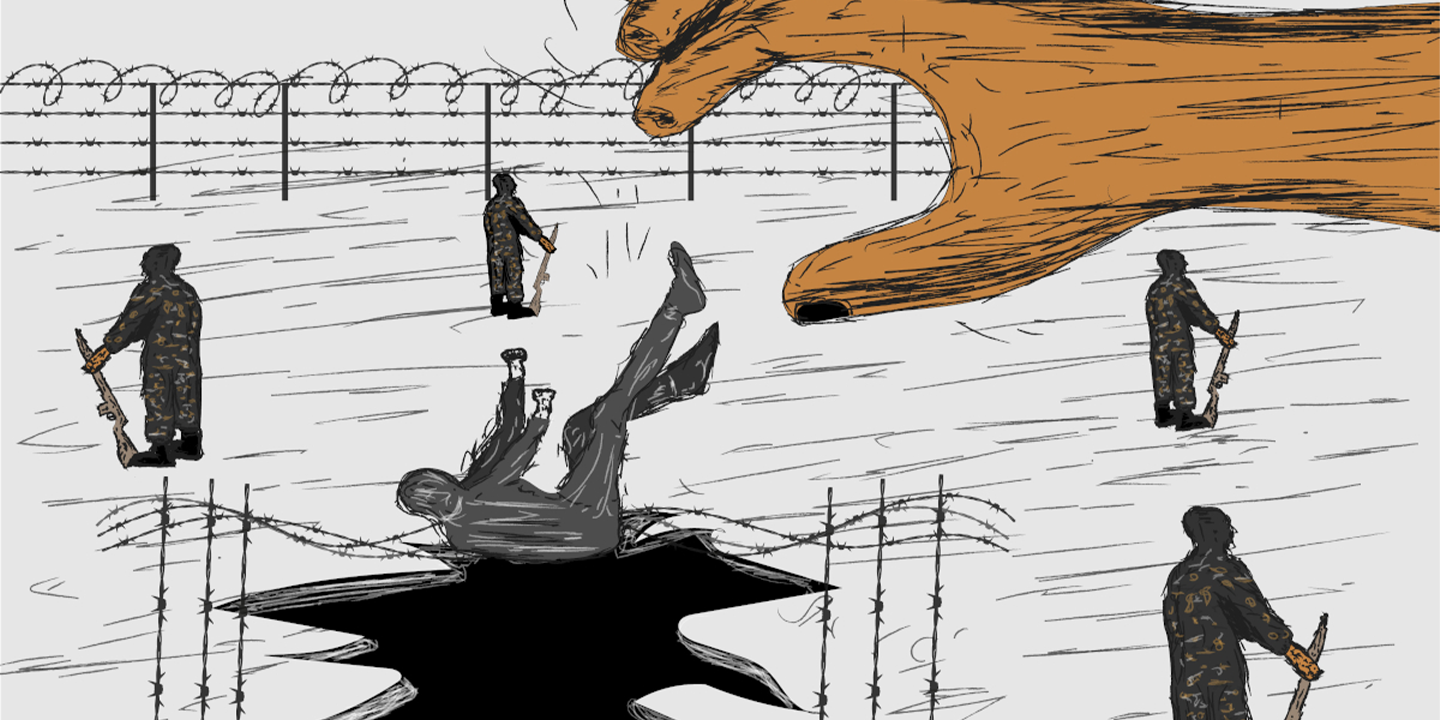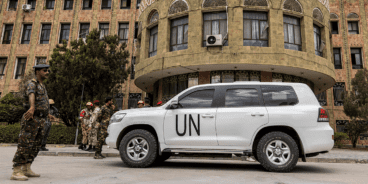

Enforced disappearances in Yemen as a direct result of impunity
On August 30, the International Day of the Victims of Enforced Disappearances, the persistent nature of enforced disappearance in Yemen, exacerbated by the impunity applied to all parties to the conflict, is underscored by the 31 undersigned local, regional, and international organizations, associations, and networks.
Since the beginning of the conflict in 2014, and after the military escalation in 2015, parties to the conflict have committed serious violations of international law and international humanitarian law. The Saudi/UAE-led Coalition, the Ansar Allah (Houthi) group, the internationally recognized Government of Yemen, authorities loyal to the Islah Party, and UAE forces and UAE-backed groups, including the Southern Transitional Council and the Joint forces, have committed–and continue to commit–enforced disappearance across Yemen.
Parties to the conflict have detained hundreds of Yemenis at official and unofficial detention centers, as confirmed by the research of civil society organizations. Detainees have been disappeared, tortured, and some have died in detention. According to Yemeni human rights lawyer Abdulmajeed Sabra, ‘enforced disappearance and other violations faced by civilians, including academics, journalists, human rights defenders or perceived opposition are intended to silence criticism of the authorities , and to strengthen their grip on power through the spread of fear.’ Radhya Almutawakel, the co-founder of Mwatana Organization for Human Rights, added ‘Yemen’s judiciary is unable to hold the real perpetrators of serious crimes accountable and does not have a mandate over non-Yemeni perpetrators. The judiciary is also unable to connect specific crimes to perpetrators, and demonstrate the chain of custody for the evidence it collects in order to meet the required legal standards.’
In this context, Sarah Al-Areqi, researcher at the Cairo Institute for Human Rights Studies, says that “the international community should give the highest priority to the formation of an international criminal accountability mechanism to collect, preserve and analyze evidence, prepare case files and communicate with victims of violations and serious crimes, including enforced disappearance; a prelude to holding the perpetrators accountable.
The cases investigated during the mandate of United Nations Group of Eminent Experts on Yemen (GEE) provide reasonable grounds to believe that “parties to the conflict are continuing to engage in enforced disappearance, arbitrary detention and torture, including sexual violence, in violation of international human rights law and, depending on the level of nexus with the conflict, international humanitarian law. Such acts may also amount to war crimes, including cruel treatment and torture, committing outrages upon personal dignity.” In many investigated cases, “these violations are being committed against persons who are perceived as opposed to a particular party to the conflict, including human rights defenders and journalists.”
The right to truth in grave violations of human rights, for the victims and their families and societies is one of the forgotten aspects of the conflict in Yemen
A mother of a detainee in Abyan spoke about her 26-year- old son: “They kidnapped my son, hid him, tortured and killed him without a charge or trial, and then they buried him. I did not get to see him.” The detainee’s mother said, “I searched for him in the most important detention centers, security prisons and departments in Abyan and Aden. I asked the Security Belt leaders I know in Abyan about him, all of whom did not know the whereabouts of my son since his abduction. I didn’t even know what the charge against him was.”
According to the 2018 Stockholm peace agreement, Yemen’s parties to the conflict agreed to an exchange involving 15,000 detainees. But only about 1,056 were exchanged by October 2020, in a UN-backed deal facilitated by the Office of the Special Envoy of the Secretary-General for Yemen (OSESGY) and the International Committee of the Red Cross (ICRC). Moreover, several areas in Yemen have seen the release of arbitrarily detained persons by the local mediators. While these are considerable efforts, they are not sufficient when compared to those people who remain arbitrarily detained and forcibly disappeared by parties to the conflict.
In this context, the undersigned organizations call on the UN Special Procedures and the Office of the United Nations High Commissioner for Human Rights to:
-
-
- Urgently intervene in the interests of ensuring the release of all those arbitrarily detained and forcibly disappeared by all parties to the conflict in a manner that guarantees their dignity, safety and security.
- Call on all parties to ensure that detainees are afforded the right to a fair trial and are provided with means of communication with the outside world, have access to legal counsel, and provide places of detention with appropriate health facilities, ensuring detainees’ ability to access health facilities and obtain necessary health care.
- Call on all parties to guarantee the respect of human rights and fundamental freedoms throughout the country in accordance with national laws and international human rights standards, in particular the UN Convention Against Torture and Other Cruel, Inhuman or Degrading Treatment or Punishment; the International Covenant on Civil and Political Rights (ICCPR), and the Convention on the Rights of the Child.
- Continue to closely monitor arbitrary detention and enforced disappearance in Yemen and violations committed, and make recommendations to parties to the conflict regarding their duties and obligations under international law to ensure the protection of civilians. Press parties to the conflict in Yemen to release all those arbitrarily arrested and detained and disclose the fate of the disappeared.
-
The organizations urge Member States of the United Nations to:
-
-
- Support efforts to achieve accountability through the Support to establish an international criminally-focused investigation body to collect, consolidate, preserve and analyze evidence, prepare case files, and identify victims of grave violations and crimes, including those arbitrarily detained and forcibly disappeared in Yemen.
- Call on all parties to the conflict in Yemen, namely the Saudi/UAE-led coalition, the internationally recognized government of Yemen, and Ansar Allah (Houthi) group, authorities loyal to the Islah Party in Marib and Taiz, and UAE forces and UAE-aligned groups, including the Southern Transitional Council.
- Rescind all death sentences.
- Ensure dynamic and regular engagement with Yemeni civil society, which includes work to amplify their demands and aspirations in policy-making towards Yemen.
- Disclose the fate or whereabouts of the disappeared and take urgent steps to verify the data of the detainees.
- Provide detainees with adequate sanitary installations, regular access to sanitary facilities and prompt accessible health care, including adequate treatment without discrimination.
- Ensure access for recognized monitors by the United Nations of detention conditions to all detention facilities, official and unofficial.
- Ensure that detainees are afforded the right to fair trial, access to legal counsel, and are provided with means of communication with the outside world.
- Create and maintain prison registries and records in all official and unofficial sites of detention, including the date, time and place of arrest of each person held, along with their name, reason for detention, and the name of the unit or entity responsible for the detention. Make these records available to families and lawyers, as well as those who have a legitimate interest in the matter. Document all transfers of detainees, including outside the country, in these records.
- Publish official lists of all detainees who died in detention facilities and prisons, including the unofficial detention sites, and issue death certificates for all detainees known to have died in custody based on thorough forensic examinations and make these documents readily accessible to families.
- Guarantee that people who remain detained are provided with means of communication and opportunities to access the outside world if in-person visits are suspended, and continue to enjoy their right to due process, including the right to challenge the lawfulness of their detention, and not to experience delays that would render their detention arbitrary.
-
Signatories:
- Action on Armed Violence (AOAV)
- Al-dameer Foundation for Rights and Freedoms
- Alakhar For Peace And Development Center
- Alf Ba Civilian & Coexistence Foundation
- Cairo Institute for Human Rights Studies (CIHRS)
- Campaign Against Arms Trade
- Center for Strategic Studies to Support Women and Children
- Defense Foundation for Rights and Freedoms
- Democracy school
- Electronic Organization For Humanitarian Media
- FOMICRES
- Foundation (My Right) to empower women politically and economically
- Global Action to Prevent War and Armed Conflict
- Global Centre for the Responsibility to Protect
- Human Life Foundation for Development and Relief
- Human Rights Information and Training Center
- International Federation for Human Rights
- Musaala Organization for Human Rights
- Mwatana for Human Rights
- PASS Foundation – Peace for Sustainable Societies
- Qarar Foundation for Media and Sustainable Development
- Studies and Economic Media Center (SEMC)
- The Observer Human Rights Organisation
- The Yemeni Archive
- Truth Justice Memory Center- Istanbul
- Vredesactie
- Watch for Human rights
- Witness
- Women for Peace and Democracy (WPD) Nepal
- Yemen Future for Culture and Media Development
- Yemeni Media Freedom Observatory (YMFO)
Related Content


